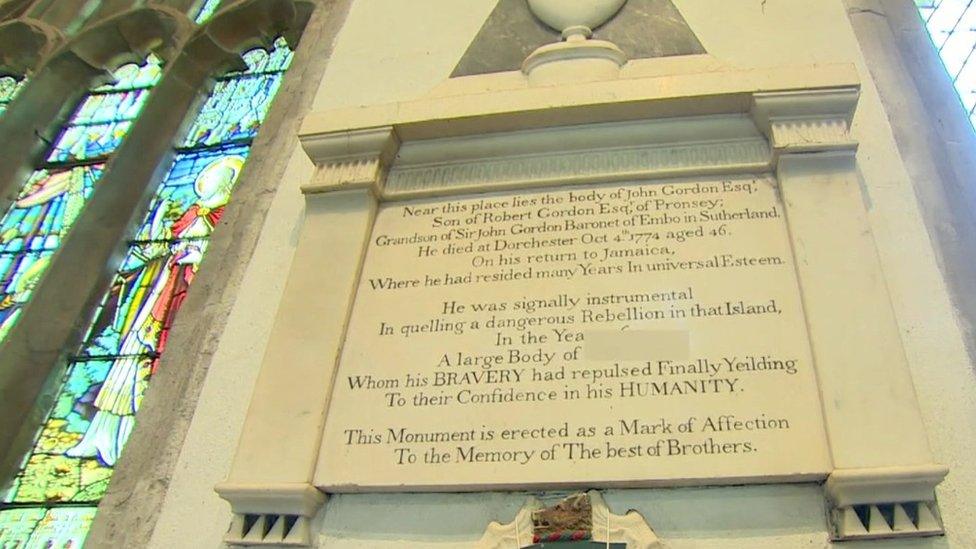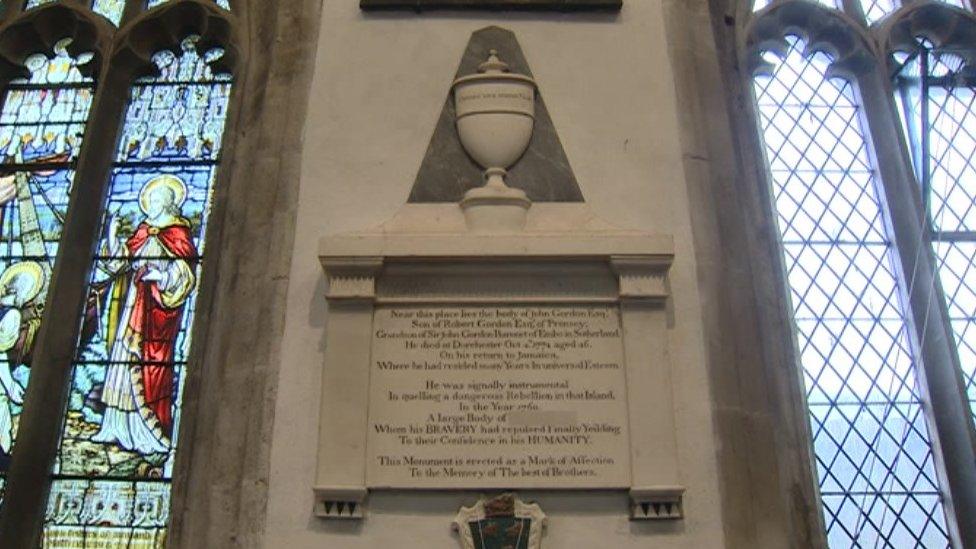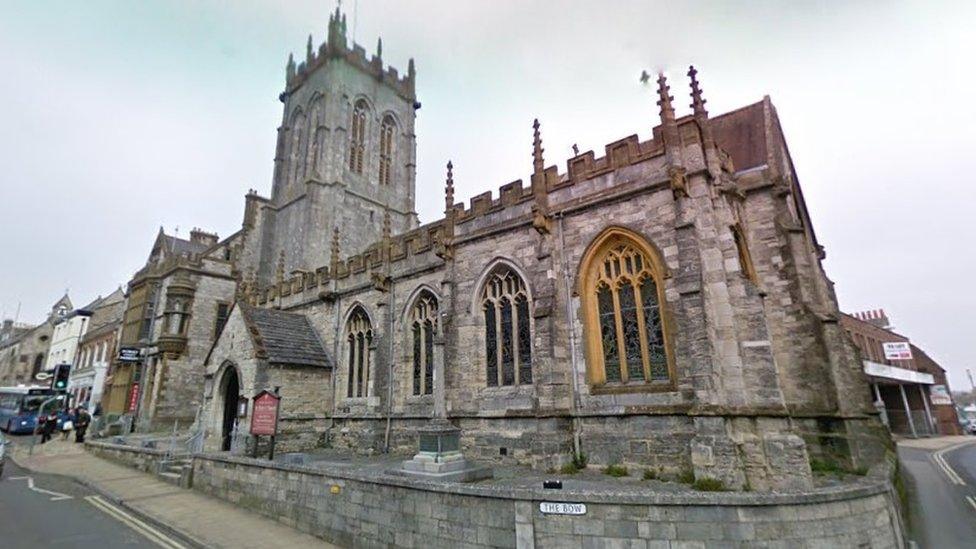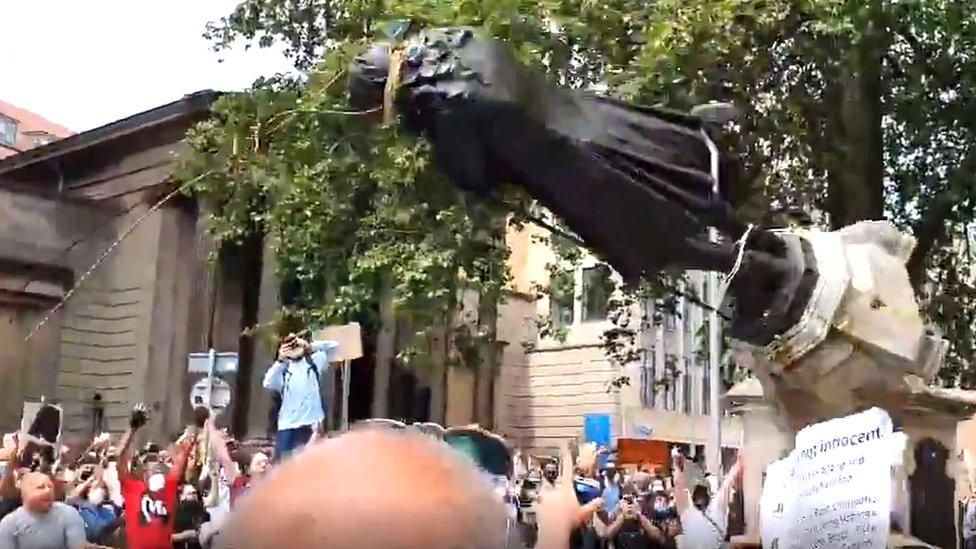John Gordon plaque to be removed from Dorchester church
- Published

The stone commemorates John Gordon's part in the deadly suppression of slaves in Jamaica
A memorial to an 18th Century slaver will be removed from a church wall, following a vote by parish leaders.
The plaque in St Peter's, Dorchester, commemorates plantation owner John Gordon and his role in the killing of hundreds of slaves in Jamaica.
Calls for it to be removed grew after a statue of slave trader Edward Colston was torn down during a Black Lives Matter protest in Bristol in June.
The parish council wants the stone to be used in a museum for education.
John Gordon died in Dorchester in 1774, aged 46, during a visit to England.
'Blatant and explicit'
The stone's inscription, which says Gordon is buried nearby, uses offensive language while hailing his "bravery" and "humanity" for his "instrumental" part in the 1760 uprising by slaves in Jamaica, which became known as Tacky's War.
Between 400 and 500 slaves were killed and hundreds more transported and sold on as colonial forces sought to suppress the revolt.
The parochial church council, chaired by the Archdeacon of Sherborne, the venerable Penny Sayer, met on Wednesday evening to decide whether to leave the stone in situ, cover it or remove it.
A temporary cover will be made while plans to permanently remove it go through the church planning process.
Church warden Val Potter said: "It will take some time because the church authorities have the equivalent of a planning system... so we are talking months rather than days."
Following the decision to remove the stone, Mona Elkotory, of South West Dorset Multicultural Network, said: "I am absolutely delighted. This decision will bring all communities together."
Campaign group Stand Up To Racism Dorset previously described the plaque as "a blatant and explicit glorification of white domination and the suppression of enslaved people".
Group member David Rhodes said: "We congratulate the church council for this decision, and especially the efforts of the church warden in steering a course through the church decision-making process.
"It is good that the church is taking steps to acknowledge our shameful past."
- Published24 September 2020

- Published7 July 2020

- Published8 June 2020
